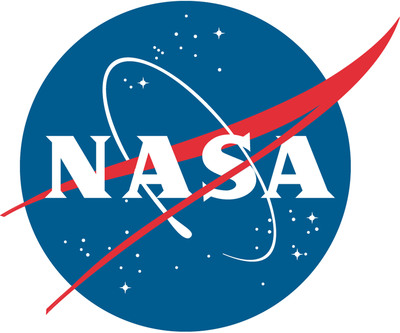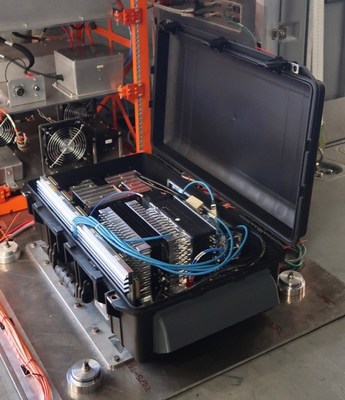Why We Fight
Why We Fight: Better Treatment Protocols and Services are Needed Now for Military Veterans – So I Launched a Metaverse Tech Company About It
A Combat Veteran suffering from PTSD shares his challenges in traversing the VA’s endeavor to keep up with technology. These institutional failures led to the founding of 2B3D, a first of its kind metaverse for delivering live, free mental health services to vets via web3
By Gordon Dodson of 2B3D
The facts are not new. The number of veteran suicides per year speaks for itself. We are living in the age of ever-evolving information and yet we struggle with providing seamless services for our veterans to access. As a 30-year IT professional and a retired Army officer, I personally understand the challenges that come with fielding a technical solution on an enterprise level. Nevertheless, it seems amiss to allow such challenges to be pushed down for veterans to resolve on their own, and navigating these complex systems can trigger a veteran’s anxiety, yielding the exact opposite desired effect of post-service care. For too many veterans, navigating our transitional systems has become a living nightmare, and the only possible solution is to unite and fight this beast head-on, together with the Veteran Administration’s (VA) help.
It’s not that the government doesn’t have good intent – it’s the magnitude of the problem that’s the challenge. There are literally hundreds of different systems and associations trying to work together and the biggest roadblock are interface challenges that can actually make routine actions more difficult and overly complicated.
When I retired in 2012, I felt confident I could work through any transition without much of a problem. In the military, we moved every couple of years and got deployed routinely so what’s another transition? However, it quickly became apparent to me that the system was not prepared to adequately support my needs and I would be looking out for myself. The hardest part about this lookout assignment, like other veterans, is that I am not equipped to identify, understand, and completely care for my needs. To say this has been a challenge is the understatement of the century, and I just cannot imagine how difficult it is for homeless or disadvantaged Veterans who I see everywhere and very obviously have limited access to VA resources.
I have been diagnosed primarily with Post Traumatic Stress Disorder (PTSD) and trying to navigate the system under those conditions has been all-consumingly depressing. My treatment to date has been primarily facilitated by the VA and their “mental health professionals,” who the VA contracts out to provide this service. Contracts primarily go to the lowest bidders who check all bare minimum requirements, and those professionals are repeatedly shown to have little to no experience in dealing with the type of traumatic stress veterans experience.
On one particular visit, I was left in a secure, windowless room for over 3 hours, while being informed the nurse was on her way, only to learn there was a shift change and I was not part of that transfer of responsibility. At that point, I really started to wonder what I was doing wrong, and if this problem and these conditions were specific to me or endemic to the entire organization. From the outside, everything looks fully operational and streamlined, but when you are in the weeds and going through the process, it is failing to provide the care veterans deserve.
Sometimes I wonder if I would be better cared for by the VA agency and staff with physical injuries that are glaringly more apparent, and then I ask myself why would I even dare to think such a terrible thought. We need to talk about and understand the absurd reasons that I, a prior enlisted Soldier to Lieutenant Colonel in the US Army with years of service to my country, would ever begin to feel this way. The worst part is that I am not alone, as I’m finding many Veteran groups and forums discussing the same concerns and upset. So what’s the solution? The answer can and will be technology.
Combating Veteran Suicide and PTSD is not a new requirement or mission, and because of evolving technology and boots on the ground capability, we now have an opportunity for a 2B3D Veteran team to combat this destroyer head-on. The vision is to provide a free means to deliver essential lifesaving services 24/7/365 to all Veterans, regardless of their location or financial status. With the launch of 5G and Starlink networks, internet connectivity and bandwidth challenges are becoming a challenge of the past.
I became hooked on their vision when I realized the Veterans on the team had already created the baseline to launch a Virtual Reality (VR) Metaverse designed to provide Veterans with medical care. 2B3D’s Virtual Reality Medical Environment (VRME), sometimes referred to as our Veteran’s virtual medical campus, is designed to look and feel like a video game, but with real interaction with people. It combines people and technology, not just replaces people with technology. The VRME has several verticals that will directly address a variety of medical challenges that expand multiple disciplines, and we are not alone as we engage other leading-edge companies in partnership and integration opportunities, all designed to improve the medical support system.
The VRME solution, and others like it, needs to be embraced by the Veterans Administration (VA). Moving critical services into a VA driven VRME will address the direct concerns veterans personally encounter as they continue to negotiate the VA’s ever evolving programs supporting Veteran Suicide and PTSD challenges. Taking the “frustration” out of the equation will be a key component in our deliverable The benefits of immersive VR technology are continually improving and great and include those currently being realized by successful telehealth and telemedicine programs.
Getting the word out to the entire military community is our first key objective. It’s important for veterans to keep abreast of evolving technologies that directly support the military community. The VA’s telehealth network is one such community whose next technical evolutionary step is real time VR immersion to prevent or resolve existing challenges that are associated with mental health.
2B3D’s military and veterans VRME will offer more than just crisis response services and will include a variety of other essential services for the veteran and their family members to utilize. Such services will include 2B3D’s VRx NFT prescription service and blockchain technology to set the conditions needed for a Veteran to securely access and manage their healthcare data. 2B3D is taking the lead in setting the conditions for Veterans to easily transition into its VRx environment and has plans to create active duty and veteran-specific NFTs to ensure the military community isn’t left behind in this rapidly fluid time, but leads the way into this new realm of possibilities for all veterans to take advantage. Veterans deserve to be thought of first and carving out a portion of the Metaverse for them now is the best possible solution we can offer.
ABOUT GORDON DODSON
Lieutenant Colonel Gordon Dodson (retired) served in both the enlisted and officer corps. He was commissioned as a Second Lieutenant in 1993 and assigned to the 82nd Airborne Division where he obtained Senior Jumpmaster status. Gordon spent the next 19 years serving in a variety of units to include the Southern European Task Force – Airborne where he served as the Deputy Joint Communications Officer and was awarded the Bronze Star. Gordon culminated his military career in 2012 and was recognized by his design and implementation of the Army in Europe’s first functional Joint Cyber Center. He has since started his own company with a focus on Virtual Healthcare and has been strategically involved with 2B3D since November of 2021.
ABOUT 2B3D
2B3D is a decentralized metaverse with active and developing communities in the cryptoverse. The 2B3D metaverse includes several core projects:
VRx | Virtual healthcare with NFT prescriptions and real life professionals.
NFTy150 | NFT marketplace, minting option and showroom.
Topher’s Inferno | Connecting enthusiastic gamers with ambitious developers.
RestXP | B2B meeting rooms with a resting crypto reward.
So Many Gods | A Play-to Earn, space-themed sci-fi looter shooter.
To learn more about 2B3D, visit www.2B3D.com or follow us on Twitter at @2B3Dinc.






 Private Internet Access gives you unparalleled access to thousands
of next-gen servers in over 83 countries and each US state. Your
VPN experience will always be fast, smooth, and reliable.
Private Internet Access gives you unparalleled access to thousands
of next-gen servers in over 83 countries and each US state. Your
VPN experience will always be fast, smooth, and reliable.




















